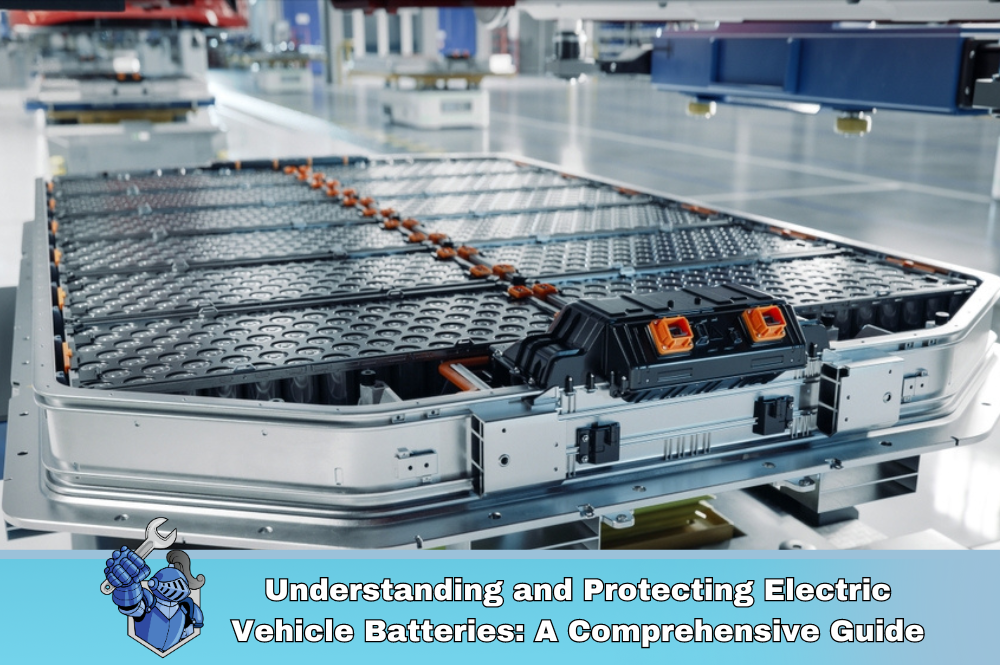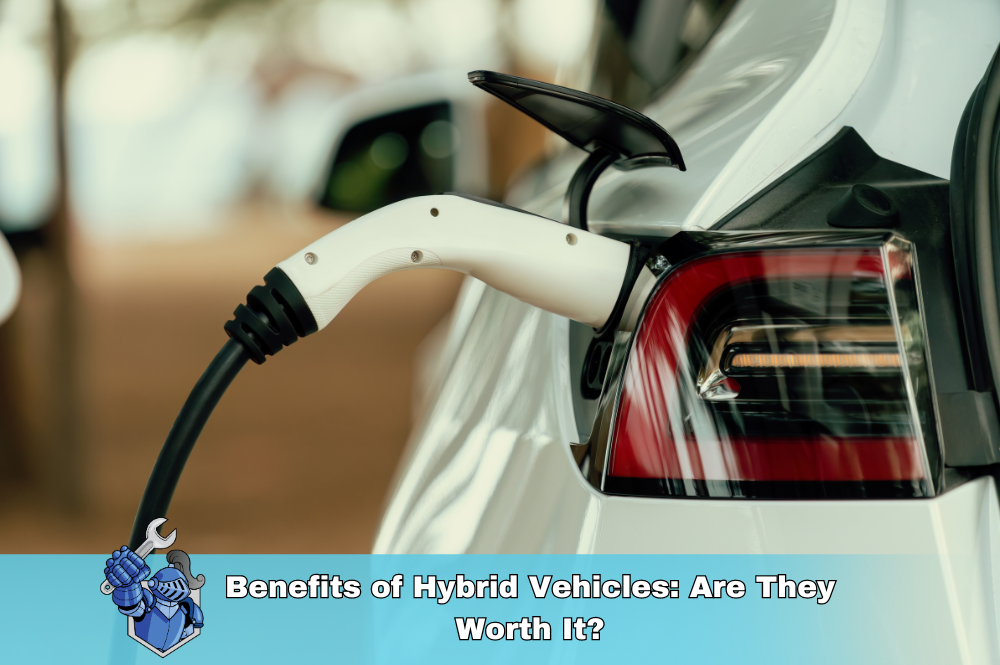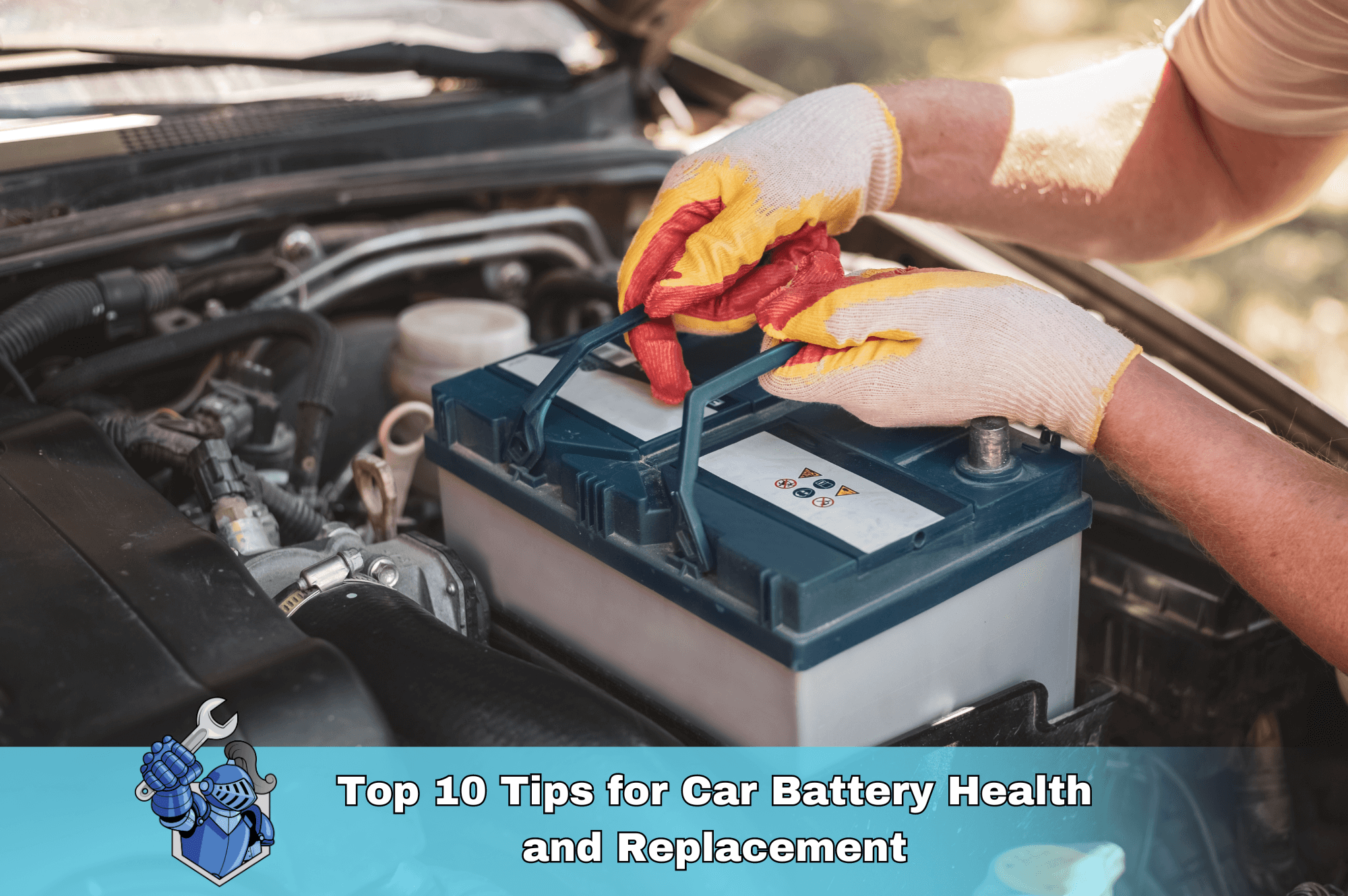Most EV batteries are designed to last 10-20 years or 100,000-200,000 miles, depending on the manufacturer and usage.
Electric vehicles (EVs) are at the forefront of the automotive industry's transformation, offering a cleaner, more sustainable alternative to traditional gasoline-powered cars. Central to the operation of every electric vehicle is its battery, a sophisticated component that significantly impacts the vehicle's performance, range, and overall cost.
This comprehensive guide will explore the intricacies of electric vehicle batteries, from their types and lifespans to maintenance requirements, environmental impact, and future technological advancements. Additionally, we’ll highlight the importance of extended warranty coverage, such as that offered by NobleQuote, to safeguard your investment.
The Basics of Electric Vehicle Batteries
Electric vehicle batteries are typically lithium-ion (Li-ion) batteries, which are also used in smartphones and laptops but on a much larger scale. These batteries are popular because they store a lot of energy, last long, and keep their charge well. Other types of EV batteries include nickel-metal hydride (NiMH) and solid-state batteries, though lithium-ion remains the most prevalent due to its superior performance characteristics.
Key Components of an EV Battery
- Cells: The individual units where chemical reactions occur to produce electricity.
- Modules: Groups of cells combined to form a unit that manages temperature and power output.
- Battery Pack: A collection of modules encased in a protective shell, often integrated with a cooling system to maintain optimal operating temperatures.
Types of Electric Vehicle Batteries: A Closer Look
While lithium-ion batteries dominate the market, understanding the different types of batteries and their respective pros and cons is essential for any EV owner.
Lithium-Ion (Li-ion) Batteries
Lithium-ion batteries are the most widely used type in EVs due to their high energy density, light weight, and long lifespan. They offer excellent range and performance, making them ideal for modern electric vehicles. However, they are not without risks, including the potential for thermal runaway—a condition where the battery overheats, potentially leading to fires in extreme cases.
Nickel-Metal Hydride (NiMH) Batteries
Nickel-metal hydride batteries are known for their reliability and long life cycle, but they have a lower energy density compared to lithium-ion batteries. They are heavier and less efficient, making them less suitable for high-performance EVs. However, they are still used in some hybrid vehicles and older electric models.
Solid-State Batteries
Solid-state batteries represent the future of EV technology. These batteries replace the liquid electrolyte in traditional batteries with a solid material, enhancing safety by reducing the risk of thermal runaway. They also offer higher energy density and faster charging times, potentially extending EV range and reducing charging duration. However, this technology is still in development, and widespread adoption is anticipated in the coming years.
Lithium Iron Phosphate (LFP) Batteries
LFP batteries are a subtype of lithium-ion batteries that use iron phosphate as the cathode material. These batteries are praised for their safety, thermal stability, and longevity. While they have a lower energy density compared to traditional lithium-ion batteries, their durability and cost-effectiveness make them a popular choice in some markets, particularly in China.
Lifespan and Degradation of EV Batteries
The lifespan of an EV battery is a crucial factor for any potential electric vehicle owner. Most EV batteries are designed to last between 8 to 15 years, depending on usage patterns, charging habits, and environmental conditions. However, over time, these batteries can degrade, leading to reduced capacity and driving range.
Factors Affecting Battery Life:
- Charging Cycles: Frequent charging, especially with fast chargers, can reduce the battery's lifespan.
- Temperature Extremes: Both high and low temperatures can negatively impact battery performance.
- Driving Habits: Aggressive driving can lead to faster battery depletion.
Maintenance and Care of EV Batteries
Proper maintenance of an EV battery is essential to prolong its life and maintain optimal performance. Here are some tips for EV owners:
- Regular Software Updates: Manufacturers often release updates that improve battery efficiency and performance.
- Moderate Charging: Avoid frequent use of fast chargers and try to keep the battery charge between 20% and 80%.
- Climate Control: Park in shaded areas during hot weather and in garages during cold weather to protect the battery.
Environmental Impact of EV Batteries
While EVs are celebrated for their lower carbon emissions, the environmental impact of their batteries is a topic of ongoing discussion. The production, usage, and disposal of these batteries all contribute to their overall environmental footprint.
Production Impact
The production of EV batteries involves mining raw materials such as lithium, cobalt, and nickel, which can have significant environmental and ethical implications. Mining these materials requires substantial energy and can lead to environmental degradation and human rights concerns, particularly in regions where mining practices are less regulated.
Usage Impact
During use, EVs produce zero tailpipe emissions, significantly reducing their environmental impact compared to internal combustion engine vehicles. However, the environmental benefits depend on the source of the electricity used for charging. Charging an EV with electricity from renewable sources like wind or solar power can significantly reduce its carbon footprint, whereas charging from a coal-powered grid diminishes these benefits.
Disposal and Recycling
The disposal of EV batteries is another critical environmental concern. Without proper recycling, discarded batteries can contribute to environmental pollution due to the hazardous materials they contain. Fortunately, there is a growing emphasis on developing efficient recycling methods to recover valuable materials from used batteries and reduce waste. Companies and governments are increasingly investing in battery recycling infrastructure, aiming to minimize the environmental impact of end-of-life EV batteries.
Charging Infrastructure and Its Impact on EV Battery Life
The availability and type of charging infrastructure play a significant role in the performance and longevity of electric vehicle batteries.
Types of Charging Stations
- Level 1 Charging: The slowest option, using a standard 120-volt household outlet. Convenient for overnight charging but impractical for long-distance travel.
- Level 2 Charging: Uses a 240-volt outlet, similar to household appliances like dryers. Faster than Level 1 and commonly found in homes, workplaces, and public charging stations.
- DC Fast Charging: The fastest option, capable of charging an EV battery up to 80% in 20-30 minutes. However, frequent use of fast chargers can accelerate battery degradation due to the higher energy flow.
Impact on Battery Life
Frequent use of DC fast chargers can reduce the overall lifespan of an EV battery. While they are convenient for long trips and quick top-offs, it’s recommended to use Level 2 chargers for regular charging to prolong battery health. Charging habits, such as avoiding full discharges and not charging to 100% regularly, can also help extend battery life.
The Cost of EV Battery Replacement
One of the most significant concerns for electric vehicle owners is the potential cost of replacing the battery. Depending on the make and model of the vehicle, replacement costs can range from $5,000 to $20,000 or more. This high cost underscores the importance of extended warranty coverage for EV batteries.
The Future of EV Battery Technology
The future of electric vehicle battery technology is promising, with ongoing research and development aimed at overcoming current limitations.
Next-Generation Battery Technologies
Solid-state batteries, as mentioned earlier, are one of the most anticipated advancements. They offer the potential for greater energy density, faster charging, and improved safety. Additionally, advancements in battery chemistry, such as the development of cobalt-free batteries, aim to reduce reliance on scarce materials and lower costs.
Second-Life Applications
As EV batteries reach the end of their automotive life, they can still be used in less demanding applications, such as energy storage systems for homes or businesses. These second-life applications extend the usefulness of the batteries and contribute to sustainability efforts.
Wireless Charging
Another exciting development is wireless charging technology, which could eliminate the need for physical charging cables. This innovation would make charging more convenient and could potentially improve the overall EV experience, encouraging wider adoption.
Why You Need Extended Warranty Coverage for EV Batteries
Given the high replacement cost and the critical role the battery plays in your electric vehicle, having extended warranty coverage is not just a luxury—it's a necessity. NobleQuote offers comprehensive coverage plans that include protection for electric vehicle batteries, ensuring that you're not left with a hefty bill if your battery needs to be replaced.
NobleQuote's Coverage Options:
- Diamond Plan: This plan offers the highest level of protection, covering nearly every component of your vehicle, including the EV battery.
- Elite Plan: Extensive coverage for major components, including premium features like the battery, electronics, and more.
- Premier Plan: Upgraded coverage that includes critical components like the battery, motor, and electrical systems.
- Powertrain Plan: Basic coverage with premium benefits, ensuring your EV's essential systems, including the battery, are protected.
With NobleQuote, you can drive your electric vehicle with confidence, knowing that your battery is covered against unexpected failures.
Conclusion: Protect Your EV Investment with NobleQuote
Electric vehicle batteries are at the heart of the EV experience, influencing everything from performance to environmental impact. Understanding the different types of batteries, their maintenance needs, and potential replacement costs is essential for every EV owner. As the technology continues to evolve, staying informed and prepared is key to maximizing the benefits of electric driving.
Given the significant investment that an EV battery represents, securing extended warranty coverage with NobleQuote is a smart decision. Our comprehensive plans ensure that your battery—and your peace of mind—are protected for years to come.
For more insights and information on how to protect your electric vehicle, visit our Learning Center. Explore our range of coverage options and drive with confidence, knowing that NobleQuote has you covered.
References
Electric Vehicle Batteries: Your Questions Answered
How long do electric vehicle batteries typically last?
What factors can affect the lifespan of an EV battery?
Factors include frequent fast charging, extreme temperatures, deep discharges, and overall driving habits.
How can I maximize the lifespan of my EV battery?
Avoid frequent fast charging, keep the battery within its ideal temperature range, avoid fully charging or depleting the battery, and follow the manufacturer's maintenance recommendations.
What are the signs of a degrading EV battery?
Reduced driving range, slower charging times, and unexpected shutdowns can be signs of a degrading battery.
What should I do if I suspect my EV battery is having problems?
Take your vehicle to a qualified EV technician for diagnosis and potential repairs or replacement.
How much does it cost to replace an EV battery?
Battery replacement costs vary depending on the make and model of your EV, but they can be expensive, ranging from several thousand dollars to over $10,000.
Are there any warranties on EV batteries?
Most EV manufacturers offer warranties on their batteries, typically covering 8 years or 100,000 miles.
What happens to EV batteries at the end of their life?
EV batteries can be recycled or repurposed for other applications, such as energy storage.
Are EV batteries safe?
Yes, EV batteries undergo rigorous testing and are designed with multiple safety features to prevent fires and other hazards.
What are some tips for charging my EV battery safely and efficiently?
Use a dedicated EV charging station whenever possible, avoid leaving your EV plugged in for extended periods after it's fully charged, and follow the manufacturer's charging recommendations.
Suggestions for you
Read MoreLet’s work together
Every week we showcase three charitable organizations that our donations are sent to. Our clients are able to choose which of these three will receive their gift when they add coverage to their vehicle...


 How to Replace Your Car Key Battery Tips Costs and More
How to Replace Your Car Key Battery Tips Costs and More Benefits of Hybrid Vehicles: Are They Worth It
Benefits of Hybrid Vehicles: Are They Worth It Top 10 Tips for Car Battery Health and Replacement
Top 10 Tips for Car Battery Health and Replacement

